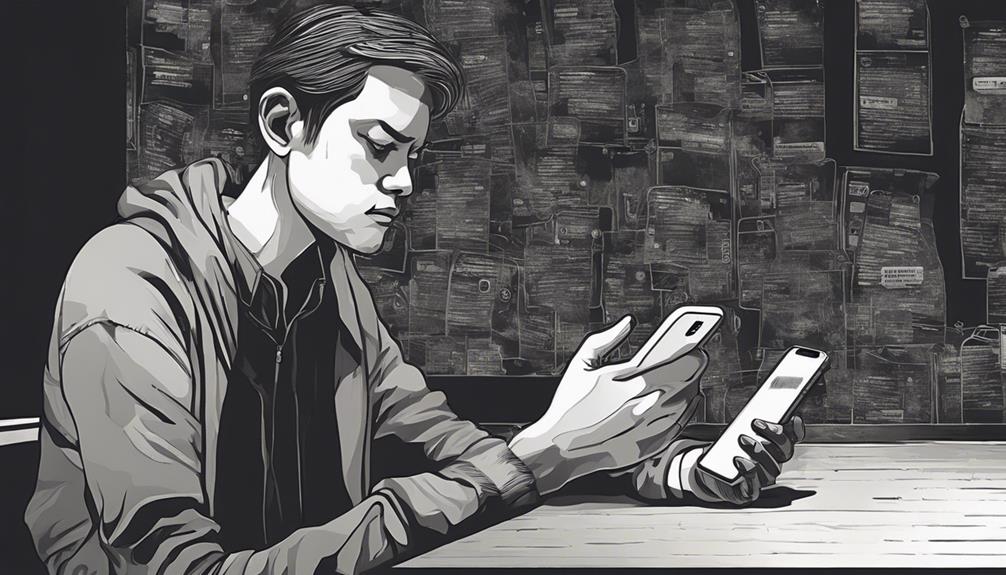Your past experiences are the building blocks for future success. They showcase your skills and provide concrete examples of your contributions. When you connect specific achievements to the job you're eyeing, you demonstrate your fit for the role. Employers value this alignment—they see your potential based on what you've accomplished. Remember to use quantifiable metrics to make your case stronger. Reflect on how your journey shapes your professional goals, and don't hesitate to share insights with others in your network. There's more to uncover about how these connections can enhance your career trajectory.
Key Takeaways
- Identify relevant skills from past experiences that align with future job roles and expectations.
- Use specific examples of accomplishments to illustrate your potential for future success.
- Quantify achievements with metrics to provide concrete evidence of your capabilities.
- Connect your career goals with your past experiences to demonstrate intentional growth and direction.
- Tailor your responses in interviews to reflect how your history supports the company's values and culture.
Understanding Employer Expectations

When preparing for an interview, it's important to grasp what employers expect from candidates. They want to understand your professional background and how your skills align with the role. Your past experiences serve as indicators of your potential success and the value you'll bring to the organization.
It's vital to assess your qualifications in relation to the job expectations. Be ready for variations of common questions, as employers often rephrase inquiries to gauge your adaptability.
Thorough preparation is key; use an interview checklist to cover all necessary aspects. Research the company and the role beforehand, and practice answering typical interview questions. Moreover, demonstrating strong communication skills can significantly enhance your chances of making a positive impression.
Finally, don't forget to dress appropriately to leave a professional impression that resonates with your qualifications.
Crafting Effective Interview Responses

Crafting effective interview responses requires you to connect your past experiences to the skills and qualifications relevant to the role. Start by identifying key skills you've developed and how they align with the job description.
Think about specific examples from your previous roles that demonstrate your abilities. Highlight similarities between your past positions and the new role to show your adaptability.
Don't just list your experiences; narrate them in a way that showcases your growth and intentionality. Practice common interview questions to refine your delivery and guarantee clarity.
Also, remember to tailor your responses to reflect the company's values and culture, reinforcing your fit for the position. This preparation will help you make a strong, lasting impression.
Quantifying Past Achievements

To effectively convey your value in an interview, quantifying your past achievements is essential. Providing specific numbers and statistics not only illustrates your capabilities but also helps employers visualize the potential impact you can have.
Focus on metrics that showcase your success, as they serve as concrete evidence of your contributions.
- Highlight a percentage increase in sales or efficiency.
- Mention the number of projects completed ahead of deadlines.
- Share data on client satisfaction ratings or improvements.
Defining Your Career Path

Defining your career path is essential for achieving long-term success and fulfillment in your professional life.
Start by evaluating your skills, interests, and values. Identify what you're passionate about and how it aligns with potential career opportunities.
Set clear, achievable goals that guide your journey, breaking them into short-term and long-term milestones.
Research industries and roles that intrigue you, allowing you to envision your future. Networking with professionals in those fields can provide valuable insights and open doors.
Regularly reevaluate your path as you gain experiences and skills, ensuring you remain aligned with your evolving aspirations. Additionally, consider exploring remote AI job opportunities as they provide flexibility and access to a wider range of roles in the evolving job market.
Navigating Key Interview Questions

Successfully maneuvering key interview questions can greatly influence your chances of landing a job. To ace these inquiries, it's essential to understand what employers are really looking for.
Prepare to discuss your skills, experiences, and how they align with the company's values. Here are some strategies to keep in mind:
- Anticipate common questions like "What's your greatest strength?" and tailor your responses.
- Use specific examples from your past to highlight your accomplishments and adaptability.
- Stay aware of leading questions that may reveal your self-awareness and thought processes.
Additionally, reflecting on your past experiences can enhance your ability to manage stress during the interview process, which is crucial for performing well.
Aligning Skills With Job Requirements

When preparing for an interview, aligning your skills with the job requirements is essential for demonstrating your fit for the role. Start by carefully reviewing the job description to identify key skills and qualifications.
Then, outline your relevant experiences that showcase those skills. Use specific examples to illustrate how your past achievements relate directly to the role. Quantifying your successes with metrics can strengthen your case and make your contributions clearer.
Additionally, highlight any similarities between your previous roles and the new position, emphasizing how your adaptability will benefit the organization.
Leveraging Professional Development

How can you effectively leverage professional development to enhance your career prospects?
Start by identifying opportunities that align with your career goals. Engage in workshops, online courses, or certifications that enrich your skill set and make you more marketable. Networking with professionals in your field also opens doors and provides insights into industry trends. Additionally, pursuing relevant certifications such as ISTQB can significantly boost your credibility in the Software Quality Assurance field.
- Seek mentorship to gain guidance and feedback.
- Attend industry conferences to expand your network and knowledge.
- Regularly update your resume and LinkedIn profile to reflect new skills and experiences.
Frequently Asked Questions
How Do I Build Confidence Before an Interview?
To build confidence before an interview, start by preparing thoroughly. Research the company and role, and practice common interview questions.
Create an interview checklist to guarantee you cover all aspects. Dress appropriately to feel professional and self-assured.
Visualize a successful interview and remind yourself of your strengths. Connecting with others who've succeeded in interviews can also boost your morale.
What Should I Do if I Lack Relevant Experience?
If you lack relevant experience, focus on transferable skills from past roles. Think about how your abilities apply to the new position.
Highlight your adaptability and willingness to learn. Research the company and its culture, then express your passion for the role.
Use examples from your experiences that showcase problem-solving or teamwork. Practice articulating your value, and don't forget to emphasize your enthusiasm to contribute positively to the organization.
How Can I Research a Company's Culture Effectively?
Did you know that 82% of employees think company culture is a key factor in job satisfaction?
To research a company's culture effectively, start by exploring their website, especially the "About Us" section.
Check social media profiles for employee interactions and company events.
Read employee reviews on sites like Glassdoor.
Finally, reach out to current employees on LinkedIn for insights.
This'll give you a well-rounded understanding of their workplace environment.
What Should I Wear to an Interview?
When you're preparing for an interview, choosing the right outfit is essential. Aim for professional attire that aligns with the company's culture.
For most settings, a tailored suit or a smart dress works well. Make sure your clothes are clean and pressed.
Don't forget about your shoes; they should be polished and appropriate. Accessorize minimally to maintain a polished look.
How Do I Follow up After an Interview?
After an interview, it's important to follow up promptly.
Send a thank-you email within 24 hours, expressing your appreciation for the opportunity and reiterating your interest in the role.
Mention something specific from the conversation to personalize your message.
If you haven't heard back within a week or two, don't hesitate to reach out again to inquire about your application status.
This shows your enthusiasm and professionalism.
Conclusion
In the journey of your career, connecting past experiences to future success is like weaving a tapestry—each thread tells a story that adds depth and color to your professional narrative. By understanding what employers seek and articulating your achievements, you'll shine brighter in interviews. Remember, every skill you've honed and every challenge you've overcome can be your stepping stone to the next opportunity. Embrace your story, align it with your aspirations, and watch doors open.









